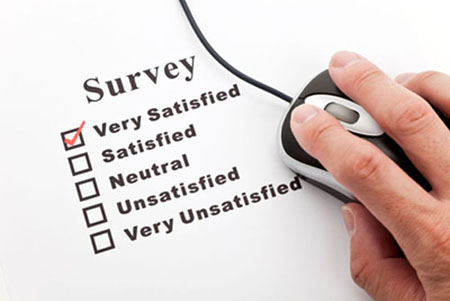You are viewing our site as a Broker, Switch Your View:
Agent | Broker Reset Filters to Default Back to ListMLS or Broker Technology Site License
January 26 2015
Below is an excerpt of a new whitepaper from WAV Group. To view the full report, click here.
 Last year, WAV Group spent a lot of time measuring the effectiveness of MLS and broker technology services with our clients. Our process typically includes one or all of the standard practices for measuring product adoption and satisfaction: surveys, focus groups, competitive analysis, adoption rate curves, true cost analysis, etc.
Last year, WAV Group spent a lot of time measuring the effectiveness of MLS and broker technology services with our clients. Our process typically includes one or all of the standard practices for measuring product adoption and satisfaction: surveys, focus groups, competitive analysis, adoption rate curves, true cost analysis, etc.
The truth is, very few of our nation's MLSs or brokers do an effective job at communicating, marketing, and supporting all of the services offered through subscriber fees. Site licenses have created a circumstance where the many (all MLS subscribers or brokerage agents) are paying for services used by the few that use a service.
Definition
A site license is a process whereby the MLS or brokerage purchases a service from a vendor for all of its subscribers or brokerage agents. Typically, a technology solution that may cost an individual $20 to $40 per month will be priced around $.50 to $2 per user per month for an MLS or large brokerage firm. Economics of scale come into play. When you are purchasing a service for thousands of users vs. a single user, you get a discount. Moreover, MLSs or brokerages will often assume responsibility of supporting the application. For example, brokers or MLSs typically will take on user set-up, training, first tier help desk, remove billing costs, etc. The brokerage or MLS is removing many of the real costs to delivering SAAS technology to agents and brokers.
To Site License or Not
There is a critical line that every brokerage MLS must draw before the consideration for site licensing a technology. It begs the questions, "Is this technology a utility that is a baseline requirement for all of our subscribers or agents, or is it only a benefit to a few?" and "Does this product disturb or support differentiation between agents and brokers who use this technology in their real estate service offering?"
Across the industry today, we find brokers MLSs who draw this line in very different places. Some brokers or MLSs pack their subscription fees with dozens of services, and others offer very little.
Where brokerages MLSs fall on the graph between full services vs. limited services varies according to business model. There are a wide range of influences including ownership; brokerage competition; competition from nearby MLSs; technology revenue strategies; culture; feelings of the chief executive; and size of the firm or MLS agent base. To some extent, the value of the properties sold also plays a factor as it determines the elasticity of "reasonable" MLS or brokerage fees.
Best Practices
1. Goal Setting
2. Adoption Tracking
3. Satisfaction Research
Goal Setting
The vendor and the MLS or brokerage need to have a clear direction about the expectations for adoption and agree to the goal. It is a good idea to have a clearly detailed roadmap for driving product adoption including a weekly or bi-weekly training program (beginner, intermediate, and advanced), Communications Program that details the frequency of communicating the service to the MLS subscribers, along with the channel for communication (email, telemarketing, newsletter, system message, direct mail, etc.), and an editorial calendar.
Remember; in most markets only 60% of agents do not close any transactions in a given year. Depending on the product, your adoption goals may vary.









